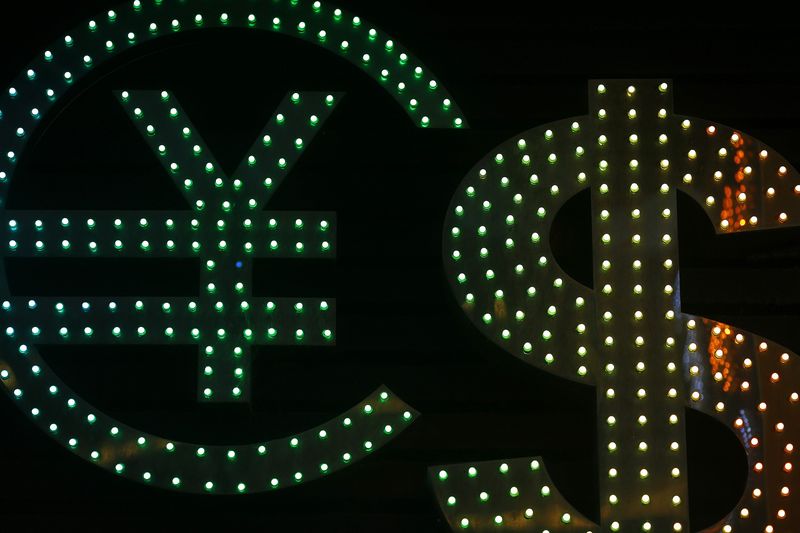* Dollar/yen 1-month volatility falls to lowest since August
* Canadian dollar steadies after hit from poorer growth outlook
* New Zealand dollar bounces almost 1 percent
By Patrick Graham
LONDON, Oct 22 (Reuters) - The euro inched lower on Thursday ahead of a European Central Bank policy decision, with most major banks expecting President Mario Draghi to talk down the currency, up more than 8 percent since the ECB began its bond-buying programme in March.
Speculation on how far the bank could go towards signalling an extension or expansion of its quantitative easing has dominated currency trade this week, but there is now little conviction the meeting will spur a strong move in the euro.
"Can Draghi push the euro or euro yields much lower in today's ECB meeting? We think he will sound dovish, but will struggle to do so," Deutsche Bank (DE:DBKGn) strategist George Saravelos said in a morning note to clients.
Reuters polling puts the median probability of the ECB extending its 1 trillion euro programme beyond its current end date of September 2016 at 70 percent, according to a Reuters poll of economists. The same poll saw a 40 percent chance that the ECB would increase its monthly purchases over the next six months. urn:newsml:reuters.com:*:nL9N0WZ019
Saravelos argued that the extension of the programme is already largely priced in, as is 5 basis points worth of a further cut in the bank's deposit rate. He said Draghi was unlikely to deliver any of that on Thursday.
The euro dipped 0.2 percent to $1.1313 in early trade in Europe, and around 0.4 percent to 135.48 yen. EURJPY=
The bigger moves this week have been on the Canadian, Aussie and New Zealand dollars, buffeted by a raft of policy signals and political commentary.
The loonie CAD= has turned back towards 11-year lows since weekend elections and took another hit from a cut in Bank of Canada's growth forecasts on Wednesday. It steadied in European trade, up 0.1 percent on the day by 0750 GMT at C$1.3119 per U.S. dollar. CAD=
The kiwi gained as much as 1 percent, recovering from a poor milk auction earlier in the week and helped by comments attributed by media to Finance Minister Bill English that the currency had already adjusted "quite considerably".
"The positive view from Finance Minister English has supported the (New Zealand) dollar overnight, although the move happened slightly later," said Josh O'Byrne, a strategist with Citi in London.
"The (New Zealand) dollar should remain supported by a paring back of expectations on near-term RBNZ cuts." (Editing by Hugh Lawson)
